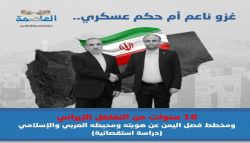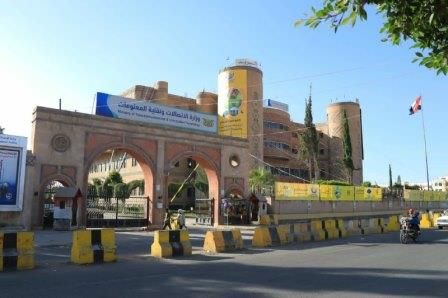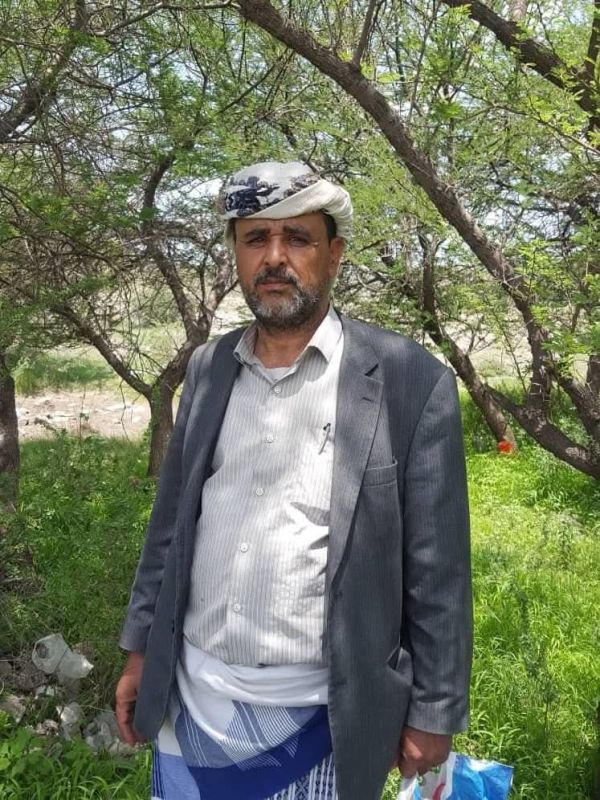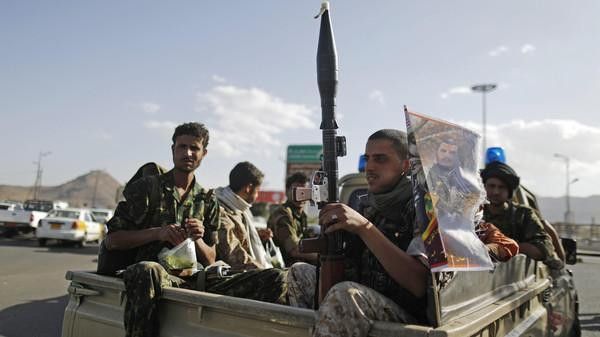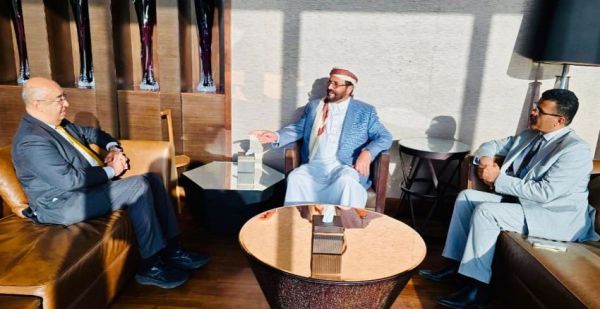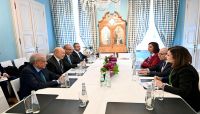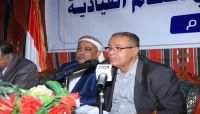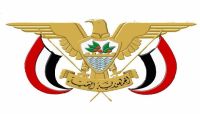الأخبار
- English
Electronic Espionage, an "unknown soldier" that turns the balance in Sanaa
Hisham Al-Shubaily-Independent Arabia
الأحد, 07 مارس, 2021 - 06:01 مساءً
" Independent Arabia" investigates into how "Ansar Allah" have transformed telecommunications sector into "a trap " to hunt opponents and recruit neutrals"
If the( Houthi) militia, were to one day suggest a symbol for the "unknown soldier" in their control of power in Sana'a, then that soldier would most likely be the "mobile SIM cards" which played a very vital role in the brutal war pitting them against the Internationally recognized legitimate government . That's because the mobile phones, were the most lethal method within most of the group's military arsenal, to entrap opponents and recruit neutral Yemeni citizens, who are divided willy nilly between the two parties to the conflict in the land of Yemen which was once described as "Al-Saeedah"or " the happy land".
Although Yemeni parties are accustomed to exchanging accusations_ in which one party monopolizes state institutions usually based in the capitals, the Yemeni telecommunications file has remained the most thorny file, and is one of the tools that provide militias financially, as well as providing intelligence and media support that help keep them together.
So, What is the story? This was the mission of " Independent Arabia", which investigated into the case through its various corridors, between the testimonies of the victims, the documents of the parties_ from the men of the Yemeni President Abd Rabbu Mansour Hadi, and the soldiers of the militia leader Abdul Malik al-Houthi .
for Arabic
Ground of control
The(houthi) imposition of control over Sanaa on September 21, 2014, was the beginning of the countdown in the steps of dominating the joints of the state. However, the share of telecommunications started with a signal from the first man in the group, Abdul Malik, who the sources say decided to form a committee to "organize spying on Yemenis "in 2016. It was made up of the Yemeni National Security Agency, which he established and in the presence of personal representatives of the Houthi in person due to the sensitivity of the issue; namely Dhaifallah Zabara and Abadi Al-Awairi. All of them agreed to appoint 7 leaders to head the Ministry of Communications, including 3 officers, two colonels and a major.
"The newspaper keeps their names secret."
Once the committee was formed, it set up units of experts who were trained in Iran, Iraq and Lebanon. Their tasks were distributed to cover all telecommunications sectors. After that, the main committee worked _according to two security sources who spoke to The Independent Arabia_ in the context of "a joint operations room between the Ministries of Defense and Interior in Sana'a, whose mission was to search and investigate about all leaders and officers of the (legitimate) Hadi government, and find out their phone numbers that were not registered with their names, as well as to monitor the phone numbers of people opposed to the group, including educators, tribal sheikhs, and influential people, using the records of the secret telecommunications of Yemeni companies, such as "Yemen Mobile", "Sabafon" and "MTN". Then" they started monitoring the activities of those targeted. "
One of the teams that emerged from the espionage committee was assigned with the task of hacking accounts on social media platforms, most notably Facebook, WhatsApp and Telegram, some of which are actively used by both officers and leaders of the Yemeni republican regime, as well as hacking those who were supporting the legitimate government or who adhered to neutrality and stayed in their homes.
The testimonies of the two security sources, whose names are kept undisclosed by Independent Arabia, confirmed that the (houthi)group’s members did what they could to control accounts and spy on mobile SIM cards as much as possible, and developed a technology thanks to which they were able to monitor all the movements required to be monitored by continuously tracking the “card” as long
as it remained connected to the power battery.
According to the information we got from the two security sources, the year 2018 saw a remarkable development when the elements who were trained in Iran, Lebanon and Iraq began to link the devices in their possession with more sophisticated modern listening devices directly related to the war room, missiles and drones in order to target the leadership of The army and the legitimate resistance members .
They explained that among the new devices that have been connected to the communications and military operations room, were devices that monitor the movement of coalition aircraft. These devices have their own radars, which have been distributed in various areas under the group’s control. This - according to the two sources - may be one of the reasons why some air strikes failed to hit targets. The Arab Coalition Forces have their targets, and the Houthis receive reports of the attack about ten minutes before the targeting operations take place.
The Constitution of the Republic of Yemen criminalizes all forms of espionage and eavesdropping, as Article 53 of the Yemeni law states that “the freedom and confidentiality of postal and telephone correspondence ;and all means of communication are guaranteed and it is not permissible to monitor, search, divulge their secrecy or delay them,” . The legislator also affirmed that right in the Criminal Procedures Law Articles (16, 14, and 12) thereof, and the infringement of this right is considered a criminal offense that is not subject to statute of limitations.
2
The Nerve of the Battle
In the context of our research and strive to complete the picture about the importance of communications and the centrality of this important sector in the ongoing battle between the Yemeni government and the "Ansar Allah" group in Sana'a, we directed a question to Raed Al-Thabti, a Yemeni telecommunications engineer who confirmed that "there are dark aspects in the process of using communications as this file technically represents" The nerve of battlefield and strategically is half the battle." and for him, the issue of eavesdropping and illegally accessing subscribers' data goes on at all legal, religious and moral levels, whether this data is text messages, voice communications, pictures or video. However, he expressed that unfortunately this is done in several ways. “Everything that goes on through the communications card is recorded in the subscribers' databases, and it is also possible to technically intercept and eavesdrop on that data . sometimes they are in automatic archiving. that means all data in the life of this segment are kept inside the base. And they are recovered once they are needed, ".
Al-Thabti pointed out that the tracking process is carried out in several ways, sometimes by traditional means, "by tracking the number through the database of subscribers, and there is a database of equipment belonging to that company numbered by the so-called automated coding process."
"The sophisticated aspect of tracking or eavesdropping process, lies in key words such as "a weapon or mine, and sometimes it is the fingerprint of the detected voice. and once it is heard, the interested person intercepts it, according to a technique called biometric" biological data ", by which intelligence services can track opponents through Algorithms and technology, usually owned by tracking and tracing companies. " he explained.
This is How Secrets Started to Unfold
The Houthi Ministry of Communications in Sanaa declined to comment on the testimonies of " Independent Arabia" sources. However, the departure of the "SabaFon" communications company,from the Yemeni capital to "Aden" last September, allowed many facts to be revealed, confirming what we have already known about the violation of Yemeni laws as well as violations against people's privacy in the afflicted country ,by spying on the details of their lifes.
The company said in a statement, that it "launched secure mobile communications services in the liberated areas through a communication network independent of the control of Ansar Allah group in Sana'a."
Its spokesman, Abdullah Al-Awadi, told " Independent Arabia", that reports of the Houthis spying on Yemeni communications through all the country's telecommunications companies are well_evidenced. "I would like to firstly affirm that the Houthi group seized all public and private state institutions, and the" Sabafon "company was one of the largest companies that suffered from this . They (houthis) further changed the legitimate management of the company and set up a department affiliated with them. Therefore, whoever does this can't be trusted by the subscribers' communications and the group is fully responsible for all these crimes, "he said.
As for the espionage mechanism, the Houthis “following their taking over of the company deliberately installed eavesdropping and spying devices on all telecommunications companies. Thus, they succeeded in transforming the company into an espionage tool after its seizure, by installing and integrating hardware and software programs within the communication systems in order to be able to eavesdrop and identify locations . They also use the customer data they have for this purpose as well.
The Houthis' knowledge _ whose government in Sana'a, is not recognized internationally_ of their illegal use of telecommunications, prompted them to demand that local companies that have remained under their control cut off their communication and information ties with the "SabaFon" wing, which split from the director/headquarter in Sanaa_according to a document obtained by the newspaper, which was directed by the houthi Deputy Minister of Communications and Information Technology, Dr. Hashem Muhammad al-Shami to each of "Sabafon, Yemen Mobile, MTN Yemen, and the Y Company". He called on them to cut their association with the dissident wing of "Sabafon" in the liberated areas to the South of the country.
" Commenting on our frequent reports and our meetings with you, he said, "Interconnection with the alleged company" SabaFon "is strictly prohibited, as it finally cut off the communication network between the governorates of the Republic on September 20, 2020, which is considered a sabotage act intended to increase suffering and discord among the people. "Also don't accept or activate any new digital categories created for the alleged company without the approval of the Ministry of Communications and Information Technology - Sana'a, the only licensee ", Reads his directions.
The Stage of Entrapment and Recruitment
After spying through SIM cards has become a systematic policy for the Houthis, our task has been to figure out the next step, and how to deal with the unfortunate people who fall under the group’s interest and are still in its areas of control_either because they are related to one of their rivals or for another reason, such as believing that the owner of the phone can obtain information that can be built upon in the service of the objectives of the military and security establishment in Sana'a.
The information we obtained indicates that the Houthi group is active through security informants, which it has deployed in various areas under its control, and even in areas outside its control. The task of these informants was to collect as much information, data, and phone numbers as possible, then send them to the group’s operations rooms, which are concerned with monitoring the movements of Yemenis, particularly those who are considered not loyal to the group.
Additionally, the Houthis have assigned female members within the so-called "Zainabiyat", to collect information about the families of the anti-group figures, and whoever the group suspect and want to monitor . The task of those elements was to get close to those families and collect as much information as possible from them.
After collecting the necessary information, they are submitted to the competent authorities, in the Security and Intelligence Service, which is the body that the Houthis established on the ruins of the national and political security services. After that, it is determined whether the targeted person represents a danger and needs follow-up and monitoring, or targeting, so that the agency assigns executive authorities, either to arrest the victim, kill him, or continue to monitor him.
According to exclusive documents we obtained as well as the sources that spoke to us, the next step was to place the target person's phone number under technical care. In the event that they are not able to obtain the target person’s number, the person closest to him would be placed instead. "Through technical attention to the phone number of the victim, his wife, or children, all his information, private numbers, and details of his movement are reached. This is followed by analyzing the data and extracting what is going to be useful for them from it."
" This way allows them to collect massive amounts of information through phone numbers." the source says
3
Detention and Extortion
Despite the disregard for the laws in the espionage operations followed in the areas under the control of the Sana'a government, yet reaching the target is still a difficult task in a rugged country with a wide terrain . So arrest and kidnapping was a mere suspicion or a thread, of a common occurrence in northern Yemen. Perhaps at least this is confirmed by the documents of the cases in our hands, such as the incident, dated 3/3/2016 and carrying a sign that “the user of the number 32 * 73 was sent to a friend who resides in areas outside the group’s control requesting an amount of money to be able to leave Sana'a because of the sons of al-Moushiki (Houthi supervisors) who he claimed harassed , humiliated him and(as a result) he cannot stay any more. " . Three days after this message, the phone number stopped and no activity was recorded following this date.
In this context, we obtained information according to which the Houthis tried to use the people who were of the most frequent visits to Marib Governorate, east of Yemen, for trade purposes _ , to pressure them and use them as spies to transmit news. Their phone numbers were put under surveillance and dozens of them were detained on false /malicious charges, including "cooperation with the forces of aggression"as the group refers to "The Yemeni legitimate government forces and the Arab coalition" backing them.
When talking with victims who went through experience, we found that horror still prevailing over them. One of them tells his story, saying, “They stopped me at one of their checkpoints in Sanaa, and took me to a secret detention place .they investigated on every letter and contact I had_ even the family messages to the numbers he used. It was Yemen Mobile and MTN(in this case) ".
He pointed out that he was interrogated for a period of five hours, all about messages related to the process of sending and receiving goods, adding that "once that ended, I was taken to another place. In the new place I was surprised that one of my friends had been there since about 12 days. and he, like me, did not know what the purpose of the investigation was.
During interrogations, someone told me literally, in the Yemeni dialect, what it used to mean “Do you want to leave or stay here?” I told him: Certainly I would like to get out, so he said, “We will release you now if you agree to work with us and provide us with all the news from“ Marib ” (Central city of Yemen) . We will provide you with facilitations ” . After the victim refused the request for“ cooperation, ”they forced him to record a video in which he acknowledged his support for the Houthi project, as a way to extort him with it in any (future)required circumstances .“.
As for dozens of victims, we have not been able to reach them so far because of their existence in the areas controlled by the group_ as those who refused to cooperate are still imprisoned, while some of them died. "
In this context, we obtained a list of 200 people whose phone numbers were monitored . Those whom(the group) could not reach his number, they instead added the phone No of his wife or one of his first-degree relatives. This list is likely to be traced /censored.
Through the group’s attention to the details of the people whose phone numbers were collected, Independent Arabia was able to know some details relating to the victims, and documented the testimonies of a number of them. Through field research, the newspaper's reporter met a number of them, listened to their testimony in several Yemeni cities . He investigated their whereabouts in different cities for several months, so that he could finally meet 40 people, who were subjected to kidnapping, torture and raids on their homes, and their families were terrorized. Among those were ones who died during the military confrontations, after they aligned themselves with the government of Abd Rabbu Mansour Hadi (the legitimate), as well as others who managed to flee to other areas that were liberated.
What is the Meaning of
"Orange"?
When talking about any war or human suffering, there is nothing better than the victims talking about themselves. And this is what Samir Al-Dhabyani does as he was captured after monitoring his phone No leading to kidnapping him by the new rulers of Sanaa .
Now he is the head of the "Yemeni Organization for Abductees and Detainees". after he was the owner of an educational facility before his arrest and an educator who had no interest in politics, according to what he said in his documented testimony with "video", he and others preferred to break the silence and make the sound of what is there to the fullest extent.
The story of the Yemeni educator Al-Dabiani, according to his account, goes back to the morning of Monday, February 22, 2016, the day he came to his family's home to take a car with his sick wife, heading towards a hospital in Sana'a to undergo an operation.
However, as soon as he moved his vehicle, he found himself surrounded by vehicles on all sides. In the beginning, he thought the matter was wrong or random surveillance, but besieging him, directing a machine gun at him and asking him to descend immediately,made him then have no doubts.
It was just minutes until the dialogue took another course, in which it reached an intensity with which the Houthi soldiers did not agree even to grant him a deadline to take his wife to the hospital or home . They also refused to undertake the task of addressing the wife's humanitarian condition. The only speech was "You are wanted, ride with us " as convulsion became the master of the situation. There, a passer-by, whose curiosity aroused from the horror of what he saw, stood up in the face of the soldiers advocating for my position in terms of finding a solution to my wife. But he too was confronted with severity and a threat, so I told him when I saw goodness in him to take the wife to the children's school to continue her journey towards home, so that I can see their business with me ".
During the first ten days of continuous investigation, the conversation was focused on the victim's phone messages, from the first day he received it. He said that when he was subjected to interrogation, they(houthis) printed all of those messages, on a mission that took the printer about 3 hours due to the large amount of content. They left no ins and outs in those letters without asking him about it, including the "home supply" that his wife used to ask him to bring to the family. For example _he added_ "When my wife sends a request for oranges in a message, they insist that she means something other than oranges that people know. so investigation takes hours on something that is understandable and cannot be explained, except for their minds."
After detaining him for two months without a trace or news, they transferred him to a well-known Yemeni prison called “Habra”. “I was the last one to enter ward No. 9,and thanks to God that I got out two years ago. But up to this point there are still a number of detainees in Houthi prisons. We were together ." He said.
In one place, unlike all those in prison, for example Dr. Lotf al-Farrasi from the province of Hodeidah - may God get him released - an old man (almost over 75 years old. he has all the diseases, and yet he is still in Houthi prisons. He was a financial official in the Tihama region. When the Houthi group attacked his house ... they took all the family's phones, such as the wife, girls, and boys, and his personal phones, and they wanted to know every little and big in their phones. In prison, the issue of text messages was subject to testing and dilemma for everyone, and about which all the detainees and kidnapped I met ,were strictly interrogated.
4
After she Lost her Eye, this was their Request
The San`ani educator was not the only one who suffered harm because of his mobile phone messages. There was also the journalist Ahmed Hathan, a former detainee in the Political Security Organization controlled by the group. He confirmed that all the investigations during his kidnapping, “were about messages of WhatsApp, whether they were personal or general, in addition to the text messages "SMS" . They also focused on money transfers dated back a year or two ago. He said" they came to me with messages that passed for a long time and I no longer remember their content. After three days of torture and beatings in the criminal investigation, they took me out at 3 am, which after investigations lasted more than 12 hours, and I was forced to sign more than 100 papers, which I knew nothing about .The common feature of arrest reasons of most of the prisoners I met in prison were related to smart phone messages of all kinds, especially those whose bad luck led them to receive messages from parties related to the legitimate government or live in liberated areas. "
As for the political activist and poet, Bardees Al-Sayaghi, she had the worst luck describing her previous activity, which seemed to raise the concerns of the pillars of Houthi rule. Therefore she paid the price in exceeding the normal torture to the loss of one of her body parts, namely her eye. However, the mobile phone messages were present in the Houthi questions, suspicions and concerns. According to her account documented with the "video", she stated that the entrapping her was a trick that didn't worked with her. Yet she found no way out but to response to it when the speaker added to her, saying, "Either you come or we come to you." And in prisons , she and dozens of Yemeni women, according to her account, were at the mercy of the notorious "Zainabiyat". She says that she was subjected to sorts of torture, like many detainees who were even raped, in a conservative society_in which all those belligerents are famous for neutralizing honor as a "red line."
"I arrived and found everything there including phone numbers that were registered in my name for different telecommunications companies, which I had forgotten." She said , adding that" They told me: Confess everything if you do not want to be tortured" . After hearing my response, they charged me with" state terrorism and betrayal of a nation ", and they gave me names of Personalities of Saudi officers whom they wanted me to pretend I knew" .
" I, by God, do not know them, but in the end I signed what they wanted after two months of kidnapping and torture and losing my right eye as a result of torture because of beating me on the table when they were interrogating me.
The Houthis in Sanaa_ as Al-Sayaghi says_ kidnapped her on August 2, 2019 at 4 am “When five vehicles, accompanied by a bus of Zainabiyat, came without a court order, and if I was guilty , they would come in broad daylight.
Once I opened the door, the men And the women entered in a brutal way; a scene that I could not forget, neither me nor my children until this moment. A woman tied my hands and the other inspecting me. I was sleeping among my children when a group of armed men with their rifles pointed at me and my children, so that my daughter tried to give me a cloak in which to cover myself . they rebuked her strongly and prevented her showing no mercy ".
Ultimately, however, the Yemeni activist managed to delude her jailers that she had become convinced of their political program and would promote their ideological rhetoric to the masses. Instead , she found her way to escape.
Kidnapping in Broad Daylight
As for Samira al-Houry, a former kidnapped one, she says that she was not officially investigated by the Houthi militia, and she was not arrested, but was rather kidnapped because there was no legal justification or a prosecution order to arrest her. Therefore she was not allowed to appoint a lawyer, communicate with her family, or even know the location of her abduction.
She goes on saying that “During the period of my kidnapping, I did not stay in an official place, and the interrogation with me was unofficial. Nevertheless, I was surprised by the presence of all my text messages and my contacts with them, and this is evidence that all telecommunications companies are under the control of the group and that they are spying and monitoring text messages and communications, regardless of your phone number. ".
Al-Houri explains the method of her arrest and interrogation, saying: “I was kidnapped by the Houthi militia after being dragged into the Passports Authority by Muhammad Al-Ghashem and Abdullah Al-Sarim, the visa official at the Passports who requested me to come, knowing that I did not apply for any visa, but he called me and said in a short phrase: " If you do not come, we would come". So I knew that there was a danger, and I went to the Immigration and Passports Authority . I was surprised that there were Houthi leaders who interrogated me for eight hours. During the investigation, I was surprised with pre-prepared charges, including intelligence and espionage. Afterwards, I was asked to lure politicians and activists in certain methods. It was mentioned in previous interviews, before they released me and kept me under tight surveillance in order to give me time to think. I tried to get time to escape from Sanaa and communicate with my family, but I was surprised on 7/27/2019 with four military vehicles, carrying Houthi militants, in addition to a bus carrying A group of Zainabiyat, led by Sultan Zaben, Ahmed Matar, Abu Salah and Abu Saqr. They stormed the residential complex in Faj Attan Abraj Al-Ansi, and entered my apartment on the 12th floor, Apartment No. 48, and destroyed all the furniture in it, stole valuables, a sum of money and gold coins . Later they took me to an unknown secret location with a number of girls who had been kidnapped earlier. I later learned that they were in the criminal investigation at a place known later as "Dar Al-Hilal" in Taiz Street 1 in front of Al-Zahrawi Market.
"I was not officially investigated by the Houthi militia, nor was I arrested legally, but I was kidnapped without a legal justification or a prosecution order, so I was not allowed to appoint a lawyer, communicate with my family, or even know my whereabouts." Al-Houri added.
Al-Houthi's Legal Justifications
After hearing the testimonies of a number of kidnapped people, we asked the lawyer of the journalists kidnapped in Houthi prisons, Abdul Majeed Sabra, about the allegations of the facts narrated by the speakers. He confirmed that the Houthi government in Sana'a is based on “the texts of the legal articles (126, 127 and 128) of the Crimes and Penalties Law and these articles.
They are Related to the aiding of aggression or the pursuit and intelligence with a foreign country_ which is mostly here referring to Saudi Arabia and the UAE, or publishing false news and statements aimed at weakening the defense force, as is the case with the accusation leveled against journalists as stipulated in Article 126, Paragraph Two.
Sometimes the kidnapped are charged with participating in armed gangs to target members of the army and the people's committees stipulated in Article 133 of the Penal Code.
Regarding the Houthi evidence and their accusations, Sabra asserted that the court which is prosecuting the journalists depended on the reports of the National Security and Political Security and on the statements they provide to him as “communications belonging to abductees although they deny them and deny their connection to these numbers and ask to address the telecommunications company to verify these Messages and make sure about who really own those numbers, as it is the body legally authorized to do so and not the National Security or Political Security.
but the court does not respond to these requests and issues its rulings, most of which were death sentences. It pleaded in such cases and submitted those requests to the court, but it did not respond.
As for the legality of this behavior, Yemeni law affirms that it is "a crime of assault on the private life of a human being, and this is punishable when the arrest warrant officers carry it out on their own without referring to the judiciary."
For his part, President of the American Center for Justice "ICG" Abdul Rahman Barman considers that the judicial law is the only one authorized to deal with privacy such as cell phone messages, as "Article 35 of the Yemeni constitution stipulates the freedom and confidentiality of postal, telephone and telegraphic transportation, and all means of communication are guaranteed. It is not permissible to monitor, search, divulge its secrecy, confiscate it, or delay it except in cases specified by the law by a judicial order, ”affirming that what the Houthi group and the intelligence services under its control do,“ is contrary to the constitution and contrary to the Yemeni criminal procedures system that does not authorize these acts.
Spying on citizens and monitoring them, as well as arresting them, entrapping them, kidnapping them, subjecting them to torture, then transferring them to trials and issuing death sentences.
He explained that from the legal point of view, "it is not permissible to use the evidence extracted through eavesdropping and espionage, regardless of their seriousness and degree of clarity, given that it was taken in an illegal manner. in addition to that the Houthis are an armed group and not an institution or a state, and there is also responsibility for the telecommunications company that has knowledge or allowed wiretapping of citizens. victims can resort to the courts, whether it is the local judiciary after the restoration of the state or the international judiciary for trademark companies that have a branch in Yemen, and thus these companies will face legal and civil liability that must compensate the victims for the damages they suffered.
Awaited Responses
Although the Yemeni government, from its temporary capital, Aden, in southern Yemen, is engaged in a multi-front struggle with the Houthis in the north, the Minister of Communications there, Eng. Lotfi Bashrif, refused to clarify any efforts made by his country's government in order to withdraw the communication rug from under the hands of the Houthis. From "Sabafon" to the south in the areas controlled by the internationally recognized government, it could be an indication that Bashrif and his team are working on their side on this file.
Upon the arrival of the official response from the government or even from "Ansar Allah", it will be published by "The Independent Arabia", as is the case with the two companies, "Sanaa and Teleman", which also refused to answer our questions to confirm or deny the information that was investigated regarding the use of its data in violation of privacy of customers.
The "Ansar Allah" group led by Abdul-Malik Al-Houthi had colluded with the former Yemeni President Ali Abdullah Saleh and overthrew the government in Sanaa in September 2014 before it took control of most of the Yemeni north . a dispute erupted between the two ruling partners, following the pressure of the Arab coalition militarily to restore Power to the government of Yemeni President Abd Rabbu Mansour Hadi, which is recognized internationally. The latter chose Aden as a temporary capital after its liberation from Al-Houthi, who with their group is engaged in talks under international auspices, and finally concluded the exchange of prisoners as a goodwill gesture, to start final negotiations to end the humanitarian crisis in the war_ torn country.
 لمتابعة الموقع على التيلجرام @Alasimahonline
لمتابعة الموقع على التيلجرام @Alasimahonline
تعليقات
اقرأ ايضاً
آخر الأخبار
كاريكاتير
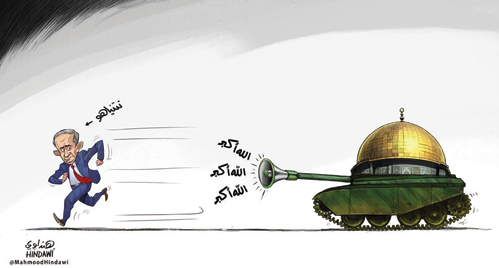
الأكثر قراءة
نائب وزير الخارجية: الحكومة ستؤدي اليمين الدستورية أمام ...
معلمو اليمن... مهن بديلة لتجاوز الغلاء وانقطاع الرواتب
ترميم قُبح وفساد قيادتها بالشهادات الجامعية مستمر.. جامعة ...
"العليمي" يؤكد التزام اليمن بالشراكة الوثيقة مع المجتمع ...
الرئيس يلتقي قيادات وشخصيات من الضالع ويؤكد الالتزام بمعالجة...
العاصمة اليوم
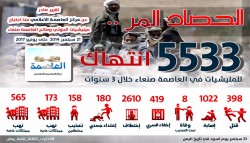
تقرير حقوقي صادر عن مركز العاصمة الإعلامي
الأحد, 13 أغسطس, 2017
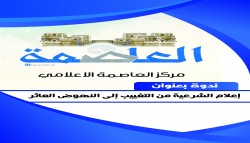
ندوة مركز العاصمة الإعلامي
الأحد, 13 أغسطس, 2017
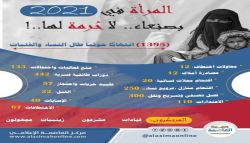
المرأة في صنعاء لا حرمة لها.. مركز العاصمة الإعلامي يرصد ...
الخميس, 01 يناير, 1970

مركز العاصمة الإعلامي يشهر دراسة بحثية عن استراتيجية إيران ...
الخميس, 01 يناير, 1970
